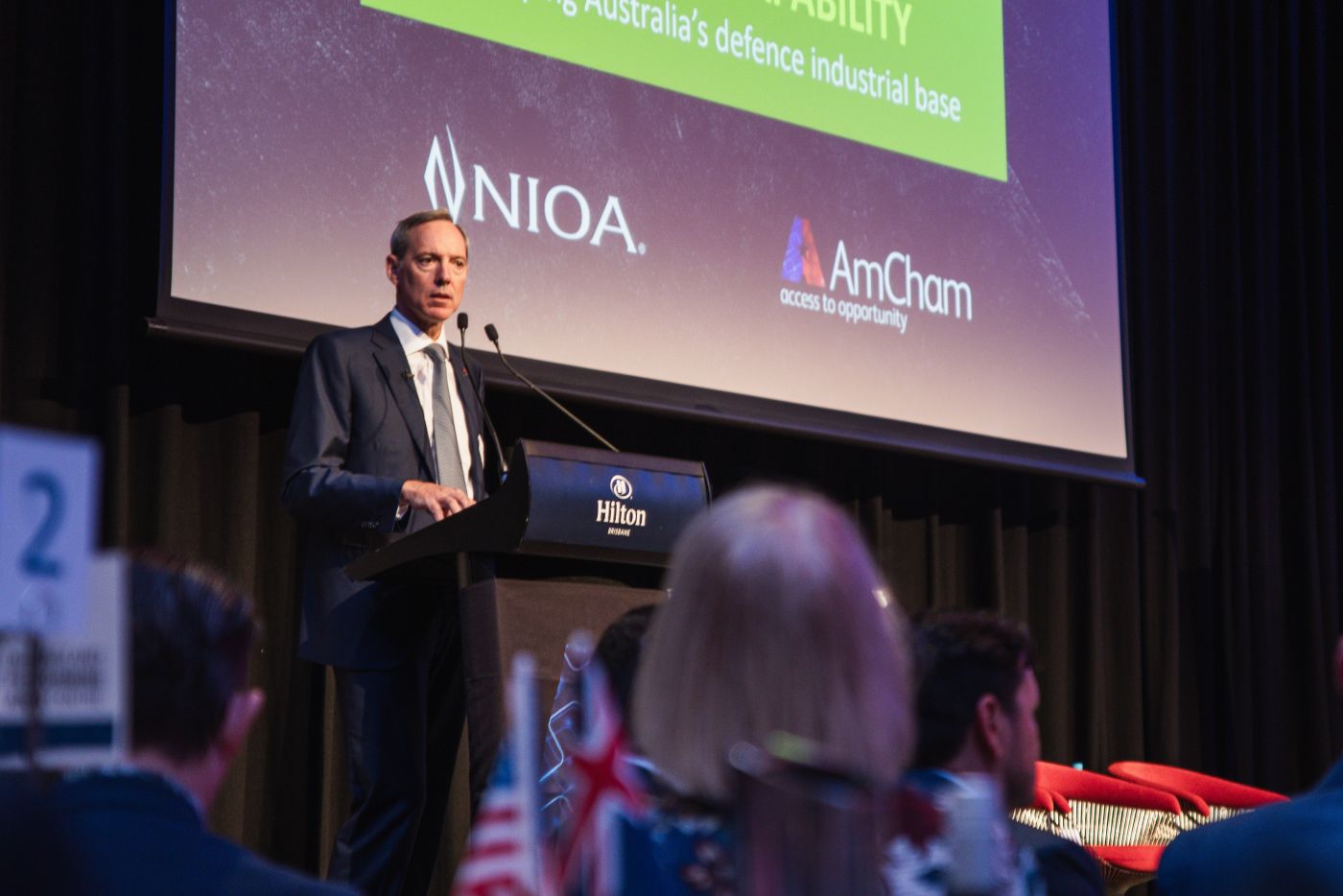NIOA Group CEO Robert Nioa has called for swift and decisive action on bolstering Australia’s defence industry to support an allied military force capable of fortifying the Indo-Pacific region.
In a keynote address to a sold-out American Chamber of Commerce (AmCham) Queensland “State of National Security” event in Brisbane today (Eds: Thursday, February 15), Mr Nioa highlighted the priorities for the domestic defence sector against a backdrop of what he described as “palpable” escalating geopolitical tensions.
The call for action comes almost 12 months to the day since the Australian Government was handed the final Defence Strategic Review (DSR) report into Australia’s defence preparedness and amid growing concerns the Australian Defence Force is struggling for weapons capability and boots on the ground.
NIOA is the largest Australian-owned supplier of munitions to the ADF, owns Tennessee-based US and Australian army sniper rifle supplier Barrett Firearms and recently announced a move into the key US munitions production facility at Picatinny Arsenal in New Jersey.
The company also has inked an agreement with US company L3Harris Aerojet Rocketdyne to explore the manufacture of critical guided weapons components to support domestic and allied missile production.
“America remains the world’s arsenal of democracy and America is stirring,” said Mr Nioa who recently returned from the US where he had key meetings with US defence industry and the Pentagon.
“Those engagements highlighted that we must build more of a sense of urgency into getting our defence industries more productive, more capable, more innovative and to a scale capable of supporting a combined allied response to large scale conflict in the Indo-Pacific region.
“There’s some good news in efforts by the Pentagon and the Biden Administration to rebuild defence production in America and through partnerships with allies like Australia.
“Because of the AUKUS deal, the Congress has passed reforms to US arms control regulations – the ITARS laws – to allow easier, faster co-operation between Australian and US firms. And this US change is being met by defence export control changes the Albanese Government introduced to Parliament towards the end of last year.
“If we can get this right, it will mean we will no longer be hampered by some of the detailed and slow administrative work needed now to get technical information from US firms.
“The goal is to establish greater production capabilities in both countries, so that Australia can be an alternative source of supply of weapons in times of conflict for the Australian and US militaries.”
Mr Nioa’s US visit coincided with the release of the US Department of Defense’s inaugural National Defense Industrial Strategy (NDIS).
Similarly, the Australian Government is due to release its Defence Industry Development Strategy in coming months.
“The US DoD new NDIS is a big step forward that is giving real momentum to reinvestment into defence production in America,” Mr Nioa said.
“A key quote from Kathleen Hicks, Deputy Secretary of Defense, from the document tells you what it’s designed to do: ‘The current and future strategic environment requires immediate, comprehensive, and decisive action in strengthening and modernising our defense industrial base ecosystem to ensure the security of the United States and our allies and partners. As this strategy makes clear, we must act now’.
“Every word from Kathleen Hicks applies right here in Australia too, because we have the same need for immediate, comprehensive and decisive action.
“The strategy repeatedly calls out the need for collective industrialisation efforts with close allies, particularly Australia.
“So, as (Defence Minister) Richard Marles and (Defence Industry Minister) Pat Conroy craft Australia’s National Defence Strategy they have said will be done this year, I am very confident that they will align Australia’s defence industry approach with the work being done in the US.”
If the government money flowed, Mr Nioa said industry was ready to step up pointing to the recently released Sovereign Australian Prime Alliance report which outlines a detailed plan to mobilise defence manufacturing.
Among eight key priorities, the SAPA plan calls for an immediate injection of $500 million in the May Federal Budget to be directed to acquisition contracts with Australian owned defence companies.
“Australians love the Australian Defence Force, and rightly so, but let’s be clear about this: we need the ADF to be well armed, well maintained and well supplied,” he said.
“And that requires more than admiration – it requires a whole of nation commitment to build a robust local defence industrial base.
“This will make Australia a stronger, indeed a tougher player in a demanding strategic time, more capable of looking after our interests and a stronger ally of the United States.”

NIOA Group CEO Rob Nioa, at the AmCham event in Brisbane, says a stronger domestic defence industry is vital to ensure the ADF is well armed and a stronger US ally.

